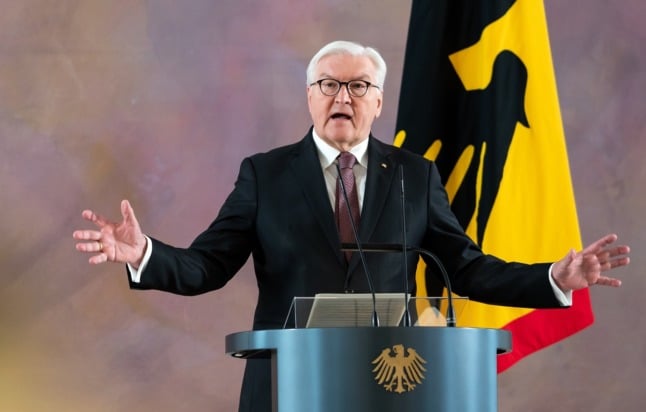First appointed president in 2017, Social Democrat (SPD) politician Steinmeier, 65, announced his intention to run again next year at a press
conference in Berlin.
Steinmeier said he wanted to “accompany the country on its way into the future” and continue to “build bridges” in the role, a symbolic counterpart to the head of government, currently Chancellor Angela Merkel.
One of Germany’s most popular and trusted politicians, Steinmeier was appointed as head of state after extended stints as foreign minister and chief of staff for former chancellor Gerhard Schroeder.
With his snowy white hair, round glasses and dimpled smile, Steinmeier is a trained lawyer with a reputation for being diplomatic and measured in his speech.
Steinmeier said being president had been an “honour” and an “enormous challenge”.
READ ALSO: German President Steinmeier receives AstraZeneca jab
Germany goes to the polls for a general election in September – its first in 16 years not to feature Merkel, who is retiring from politics.
The SPD is currently polling in third place, well behind Merkel’s CDU-CSU and the Greens.
However, Steinmeier could still be elected president again if he is supported by the new ruling parties and parliament.




 Please whitelist us to continue reading.
Please whitelist us to continue reading.
Member comments